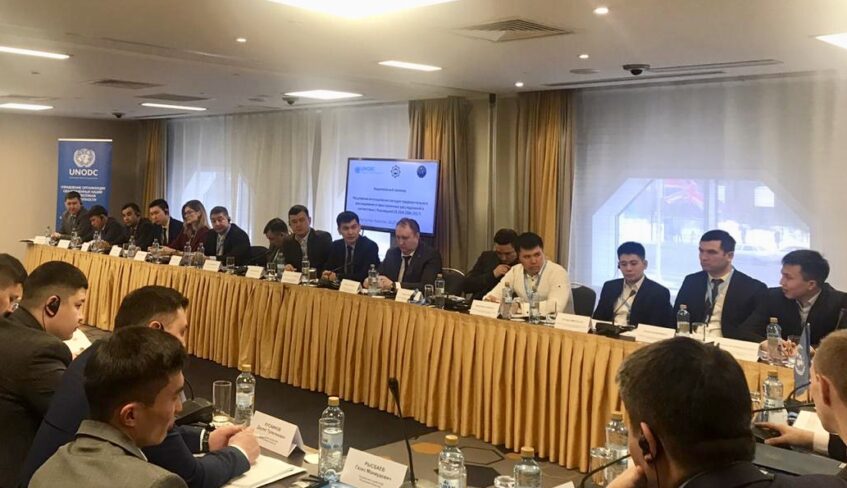The UNODC terrorism prevention branch and the organization’s Regional Office in Central Asia, together with the Law Enforcement Academy under the Prosecutor General’s Office of the Republic of Kazakhstan, held a national workshop on expanding the use of pre-trial and cross-border investigation methods in accordance with UN Security Council Resolution 2396 (2017).
The adoption of the Resolution was due to the growing threats associated with the cross-border movement of foreign terrorist fighters. The document calls on member States to take effective response measures and imposes a number of international legal obligations in the field of border security and information exchange in this context.
The two-day workshop was organized to support the efforts of national state bodies to implement the resolution, assist in conducting investigations and enhance cooperation to counter transnational and cross-border threats related to radical manifestations. The project is funded by the US government.
Participants of the forum, including representatives of law enforcement and other interested agencies of Kazakhstan and international experts, discussed challenges related to the cross-border movement of terrorist fighters, strategies and measures that can be developed to expand intra-and inter-Agency cooperation in the field of border security, as well as to strengthen the capacity of law enforcement agencies to identify individuals involved in terrorist activities.
Experts from the World Customs Organization, the UN Counter-terrorism Office, Interpol, the International Air Transport Association, the International Organization for Migration, the Organization for Co-operation and Security in Europe, the United States, and UNODC shared their experience and best international practices in these areas.
The forum also discussed current examples of best practices and case studies in the field of international legal frameworks, the identification and detection of foreign terrorist fighters, including the use of databases, data systems for preliminary passenger information and passenger registration records, surveillance in the fight against terrorism and border security.


